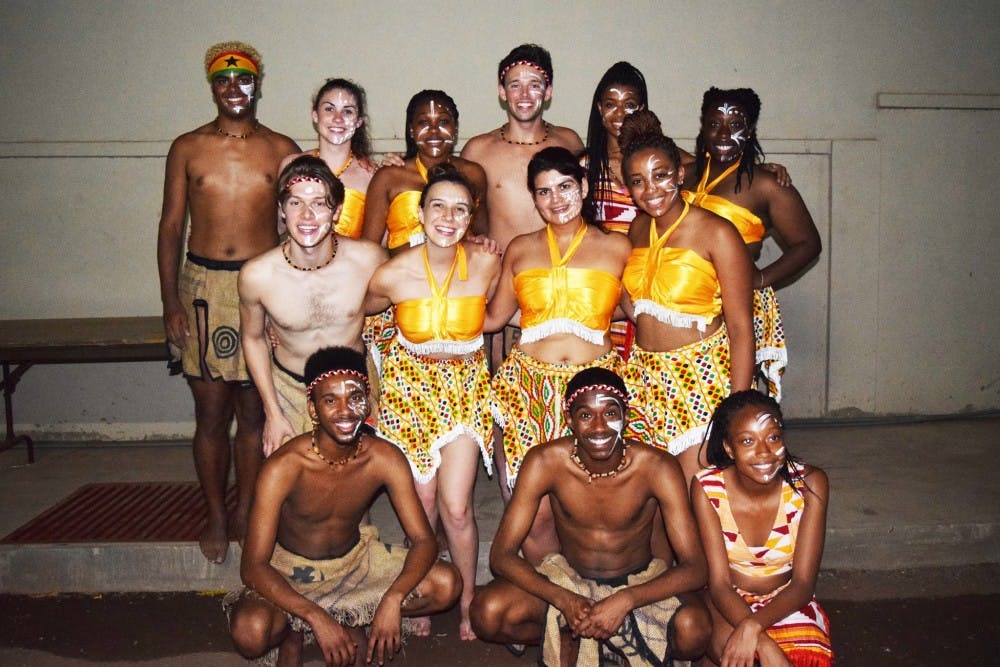Director Jason Aryeh is taking Elon University on a trip through time with his show “Amistad We Stand” at 7:30 p.m. Feb. 26 in McCrary Theatre.
This show contains several dance, spoken word and singing pieces inspired by a research project that Aryeh conducted two years ago in Cape Coast Castle in Ghana, which was originally built as a slave castle. Those performing will be representing African-American slaves while expressing the history of the slave trade.
“One thing that I learned from my research was that the slaves used movement, words and songs to communicate, so I thought it would be a really intense and creative form for me to use these three forms of art to communicate with the audience,” Aryeh said.
Aryeh is using this performance to celebrate African-American history while explaining a dark piece of it. He wanted to shift the focus from the slave trade to the journey, which is often forgotten.
“This is an event that did happen, which should not have happened,” Aryeh said. “We are not sad about it, we are remembering the event and we are celebrating it.”
“Amistad We Stand” tries to explain the feelings and situations African-Americans were living in when they were slaves. It is honoring those who were mistreated and not allowed to have a free life.
In addition to interpreting the slave trade, Aryeh is addressing controversial issues that are damaging the society now such as racism, equality, color and discrimination because of culture, gender and racial spirituality, among others.
“‘Amistad’ is a Spanish word that means friendship, so I’m looking at friendship we stand,” he said. “I keep telling my performers that I am dancing towards this future and I want to bring the audience with me.”
While watching the performance, the audience will be thrown into a different culture with African music and dance and movements that are inspired by the country students visited.
“I participate in a collection of dances celebrating African/African-American culture and heritage,” said freshman Tres McMichael. “I am excited to share this culture that I have come to love with the rest of the Elon Community.”
Trying to express the sentiments, the background of African-American slaves and communicating with people through movement and art is not the only challenging part for the performers, learning to dance to African music was difficult as well.
“West African dance doesn’t have counts, so we listen to a cue in the drum called a break,” McMichael said. “I think hearing that in the large theater will be difficult.”
After completing his research, Aryeh felt connected to the African-American slave trade because his ancestors were slaves and were involved in the slave trade. By directing and performing in this show, he will portray this connection through his dancing.
“I am doing a solo, I think that will be the highlight of the show,” Aryeh said. “I thought of having a dancer choreograph the solo but since I went through the research process, through the dungeons and held some of the original shackles, I would be able to create and interpret the solo better than having a dancer choreographing it.”
By doing this solo, Aryeh will be channeling to the audience everything he felt, learned and experienced while he was in Ghana conducting his research.
It is Aryeh’s hopes that the audience leave the show understanding the slave trade, the prevalent race issues and accept everyone no matter their color, culture or religion.
“I am looking at a future where more of us will call ourselves artists and work together to make dance concern with primary issues in life,” he said. “I am also looking at a future where dance is once again hunted for its power to inspire, to teach, to transform and to heal our separateness.”


